A few weeks ago, I brought up the fact that many citizens of early Fallon were not well pleased with the name of one of their most prominent features, Rattlesnake Hill. As a result, the local newspaper, the Eagle, challenged the Artemesia Club to find a more suitable name. But, that was another story. This story is about the so-named Artemesia Club and other local clubs which met the social needs and goals of early Fallonites, including conversation, dancing, drinking, performing rituals, engaging in philanthropy and community projects, and associating with like-minded others.
Early on in our history, most local social clubs were branches of national clubs and organizations, with roots in the nineteenth century or earlier, the majority of them for males only. During 1911 and 1912, articles in the Eagle provide details of meetings, socials and dances held by local branches of well-established national clubs: the Moose Lodge (with a membership of 104), the Knights of Pythias, the Oddfellows, Ramona Rebekah Lodge, Masonic Lodge, Order of the Eastern Star, and the Fraternal Order of Eagles. For example, we learn from the Eagle that the members of the Moose Lodge formed a Moose Band with “great success” and that the local Order of Eagles in 1911 held a “Homely Man” contest and a “Fat Man” contest. Our loyal newspaper reported that “when it came to the prize for the homeliest man, it became necessary to import talent from Reno.”
Unlike the local branches of national clubs and organizations, the Artemesia Club was unique to Fallon, born of local needs and local ingenuity. It was organized in May 1909 by Mrs. F. Dunbar, the wife of a local dentist, who, along with thirty-one other founding members, pledged to develop a clean, safe haven within the city limits for the wives and daughters of the ranchers, farmers, and miners who travelled to Fallon, often for lengthy business transactions and often leaving their wives to cope with their babies and young children from the dusty confines of a wagon, buckboard, or buggy. The Artemesia Club offered shelter, running water, electricity, companionship, warmth, or shade to all seekers, but especially to women and children. The membership was female. Later in the history of Fallon, the club raised money to fund scholarships for aspiring young women and to buy books for the local library.
Clubs unique to Fallon, like the Artemesia Club, give us an almost anthropological insight into the whims, tastes, and population trends of our pioneers. In 1906, young men in the town formed the Alfalfa Club as a meeting place for bachelors only, the town having experienced an influx of young men hired to work on the Newlands Project. In 1911, they leased rooms in the Allen House (on West Williams Avenue where the CCCommunications offices once were located) and hired a Japanese cook. Women were allowed in for parties and dances. A photograph of the interior of the clubhouse shows a meeting room dominated by a large pool table. The Eagle described an event which took place at the club’s new digs: “The billiard table, comfortable chairs and cozy couches occupy the front room, while on this occasion the next three rooms were used for card tables, there being three or four in each room. Cigars, tobacco, pipes, etc., were passed frequently, and later in the evening refreshments were served,” In May of 1913, the club hosted a social affair with thirty-some guests, many of whom were young, eligible Fallon ladies. The paper described the place cards as “artistic menus that included a photograph of the building on the front and blank pages for autographs of other guests.” Many a marriage proposal was launched in that space. Sadly, in August 1915, the building burned to the ground. The Eagle reported, “The Alfalfa Club, which has lived and flourished in our midst with all its youth and beauty, is no more.”
Other unique local clubs which give us some sense of the social lives of our early residents include the Greenhead Hunting Club (still in existence), the Five Hundred Club (for card players), the Bunyon Dance Club (self-explaining), and the Granulated Club (formed by the boys working at the beet sugar factory).
Please send your suggestions and stories to [email protected].

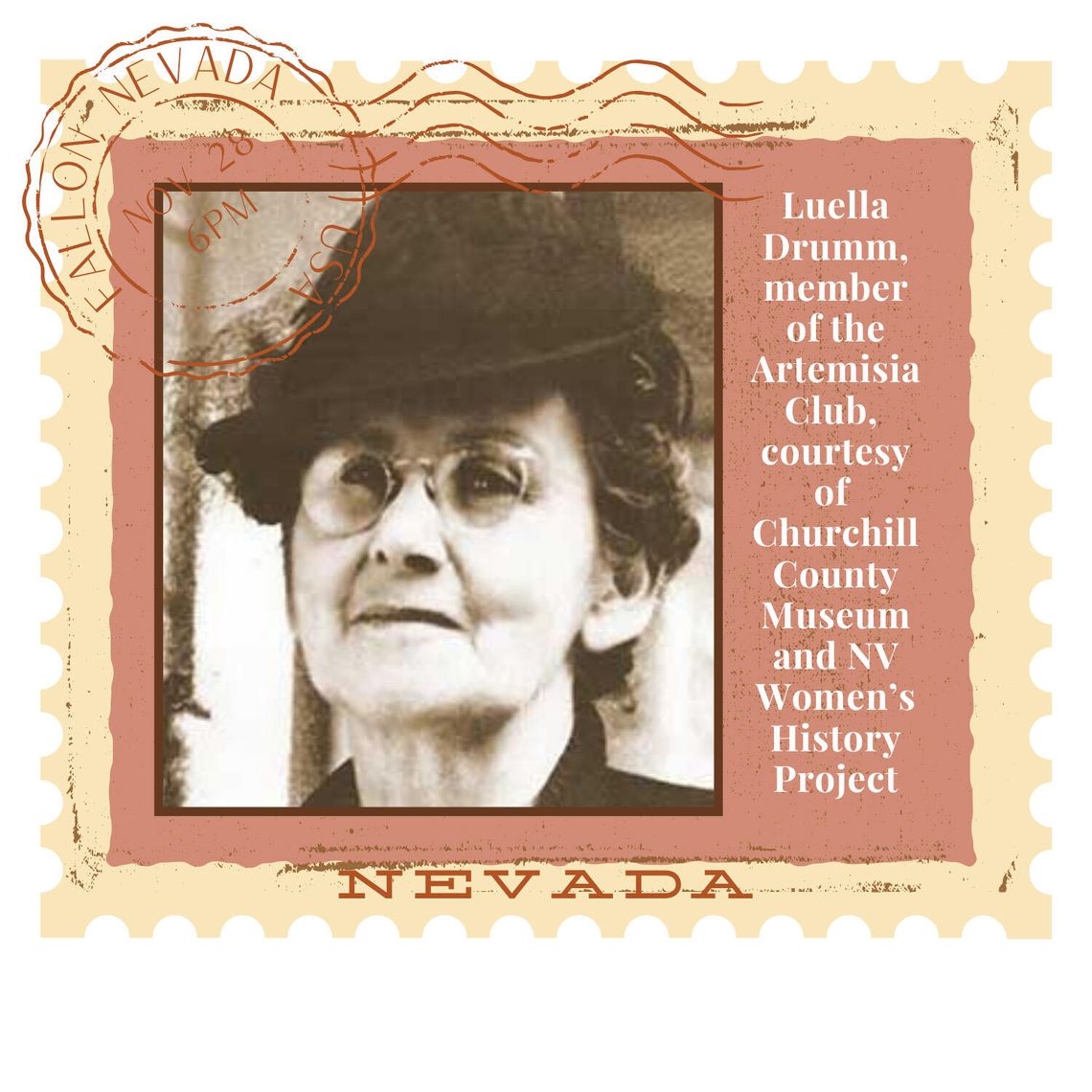
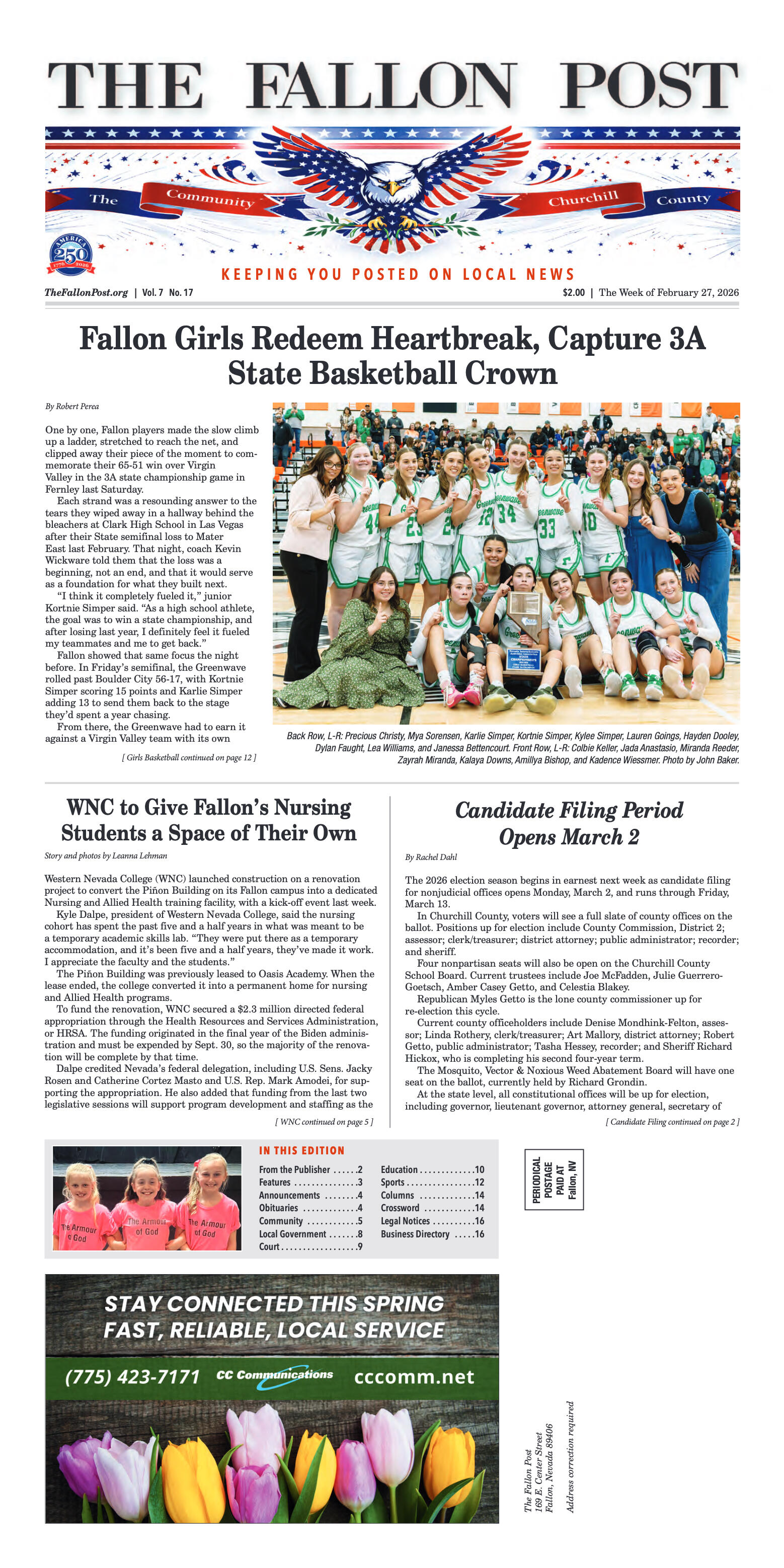
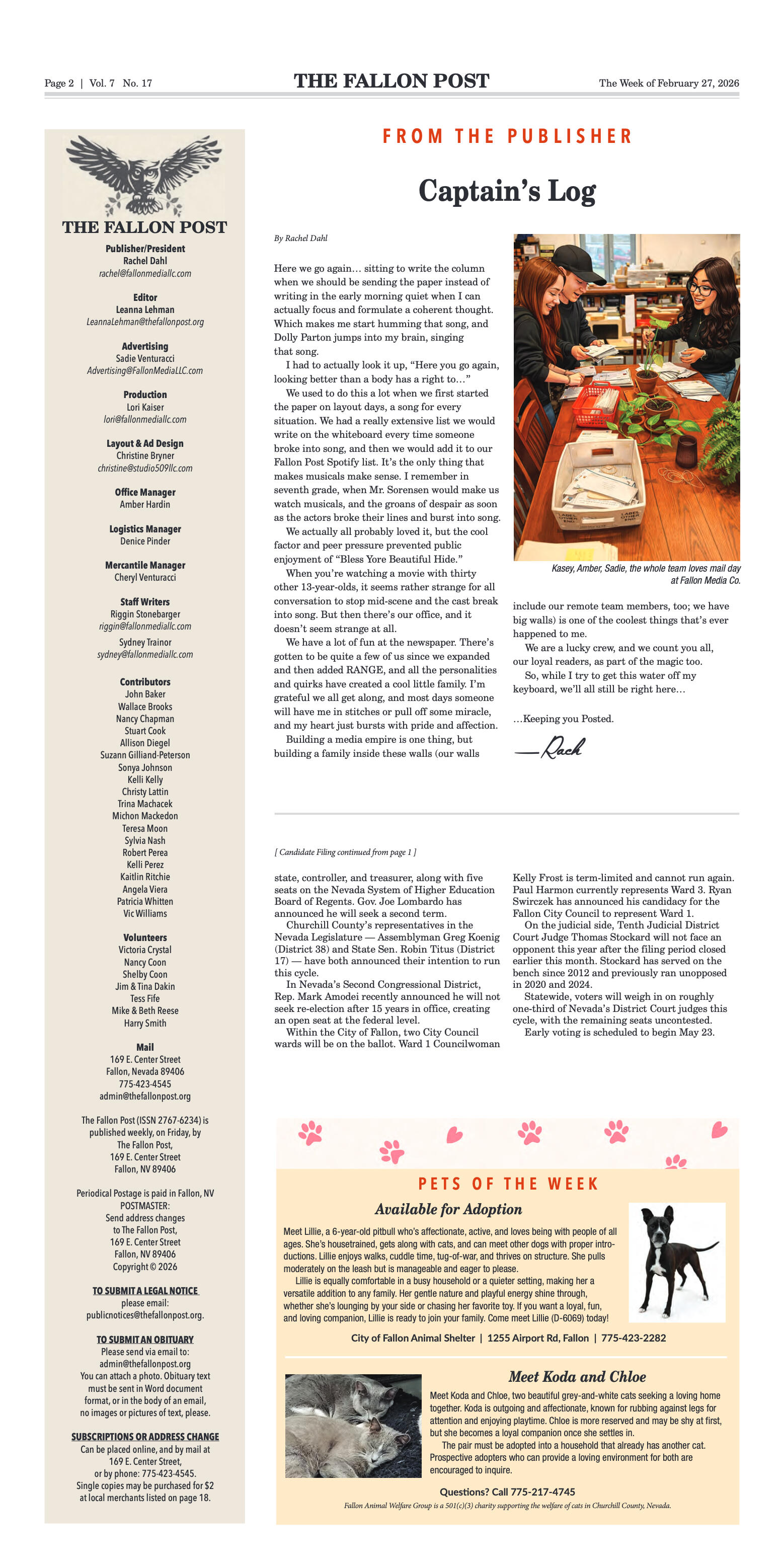
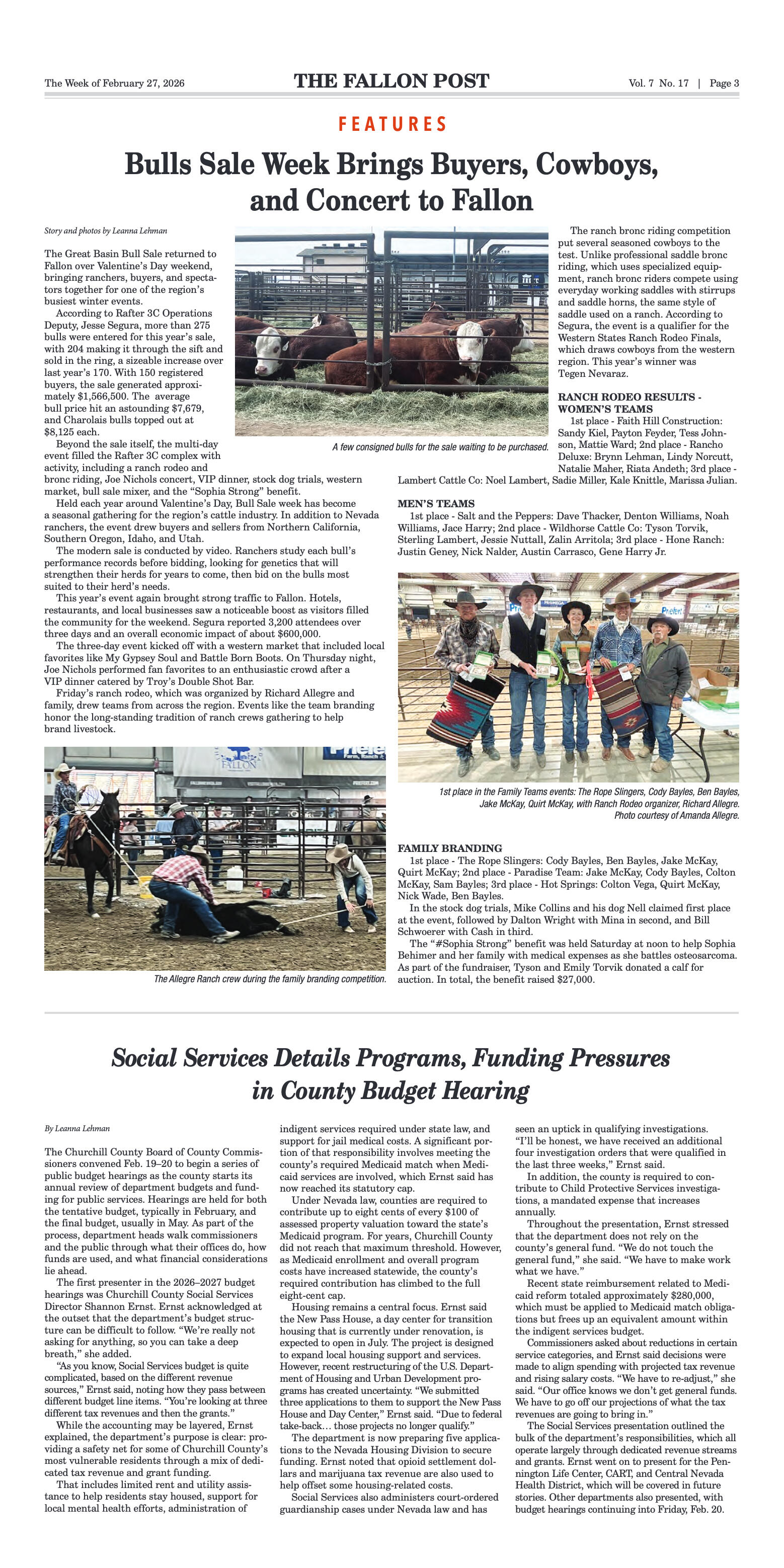
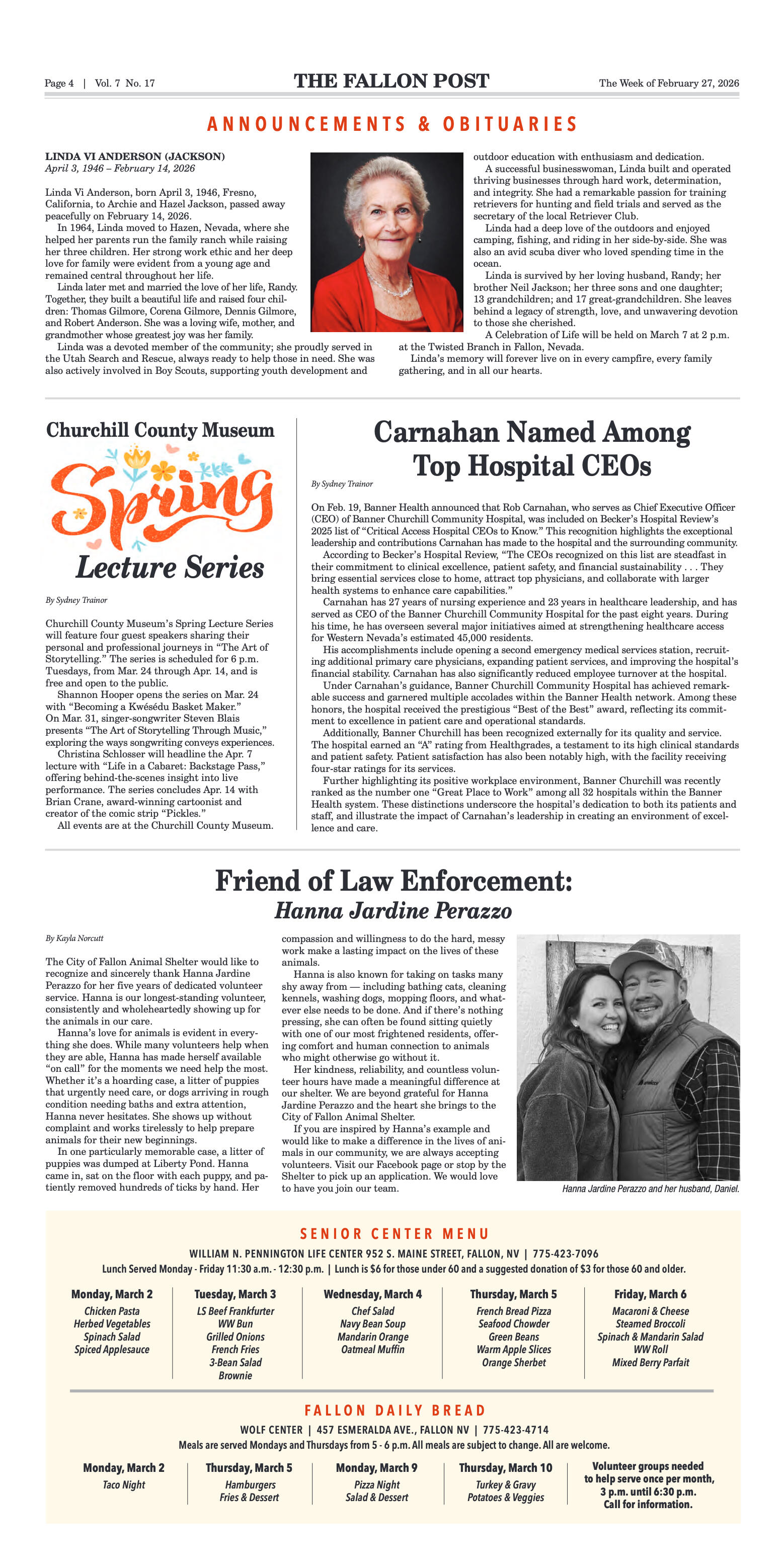
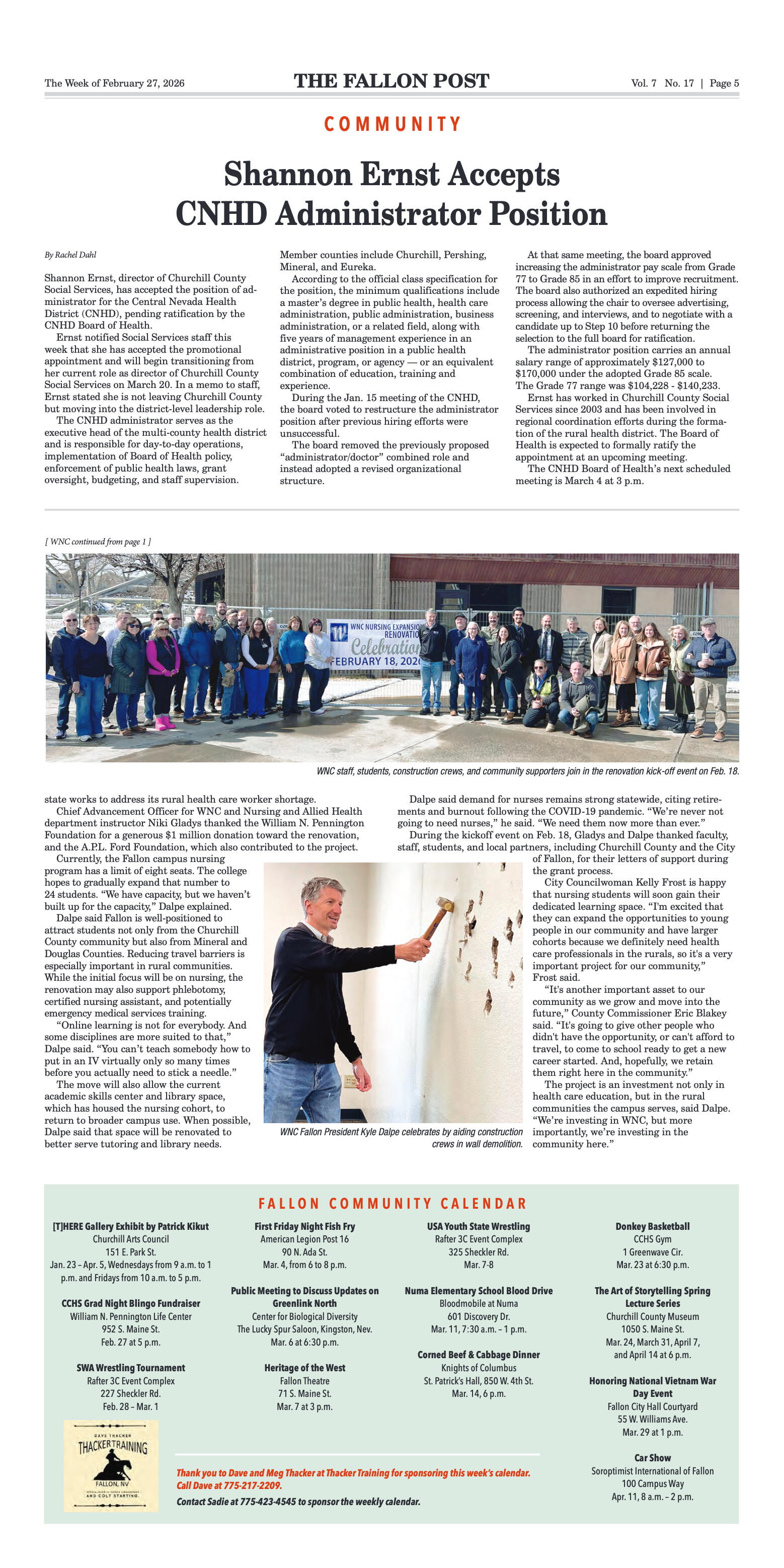
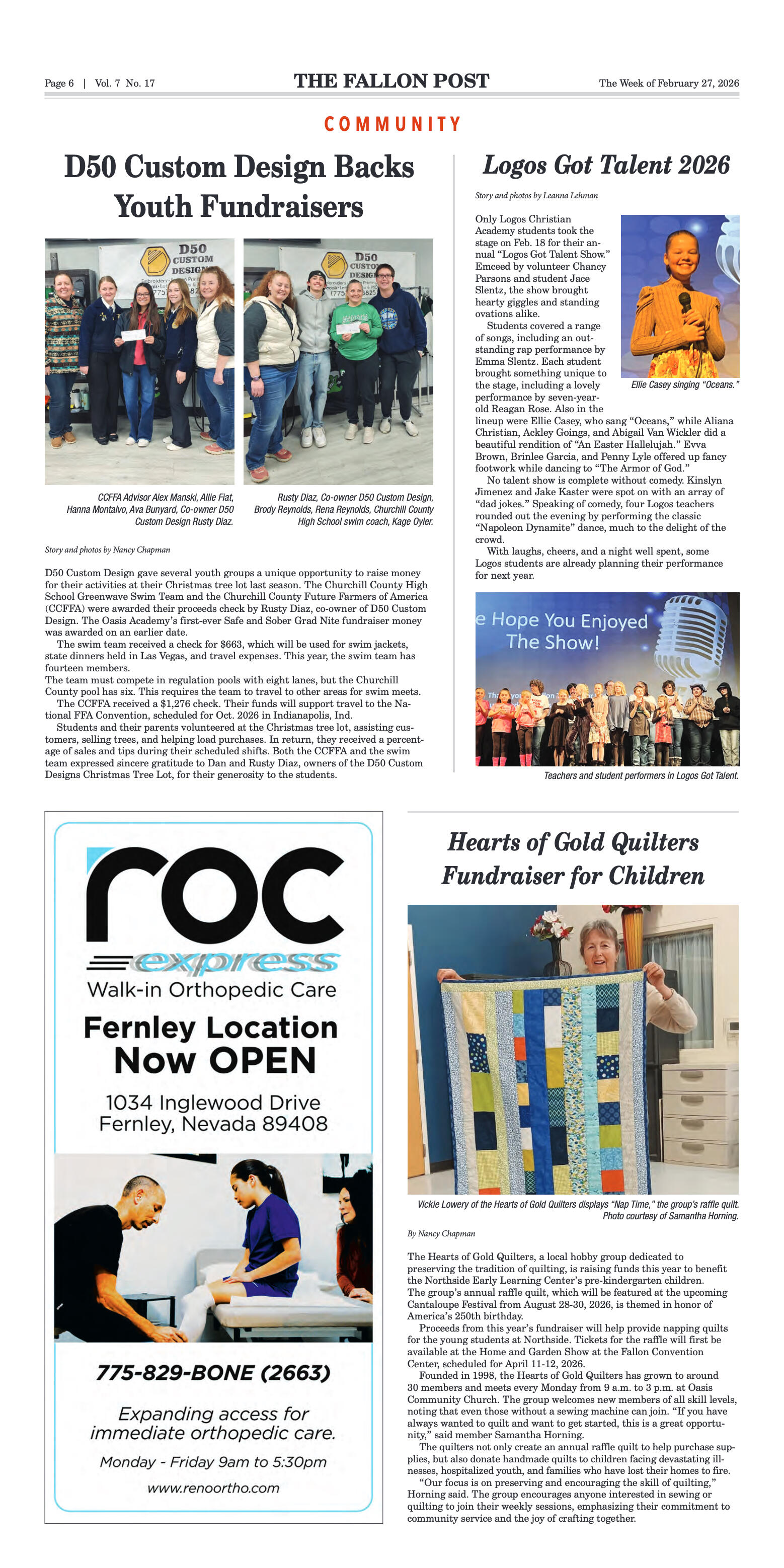
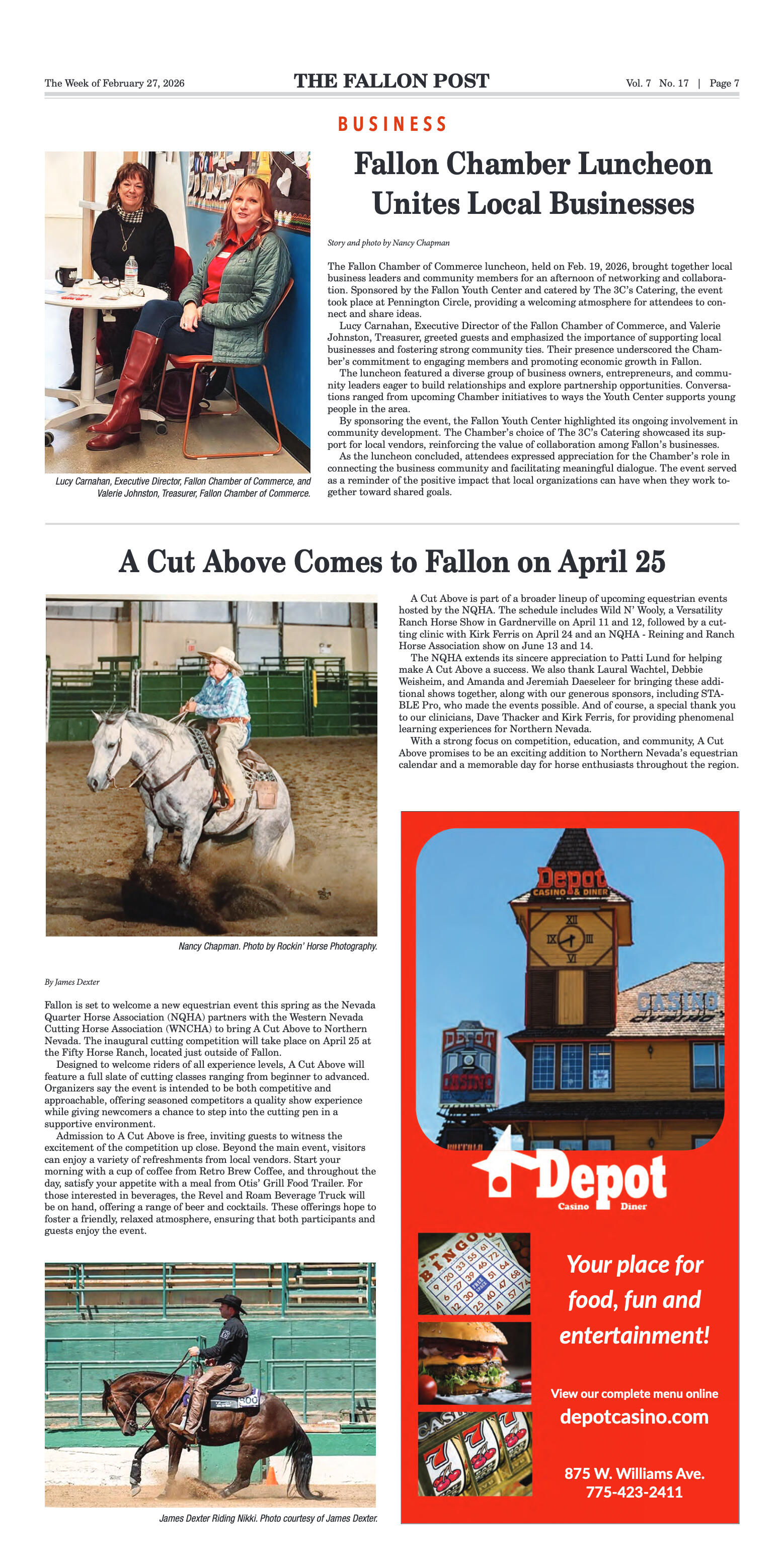
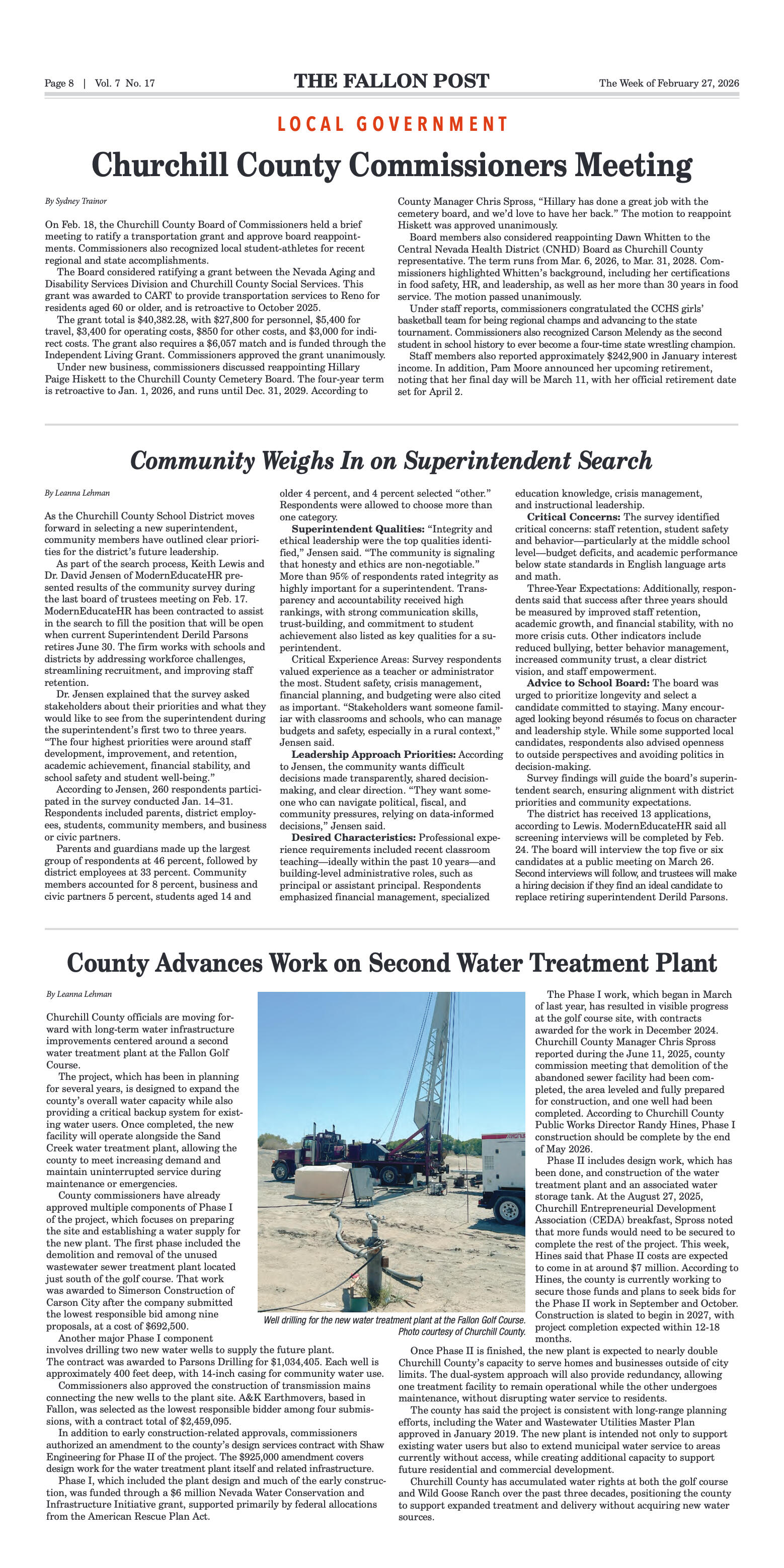
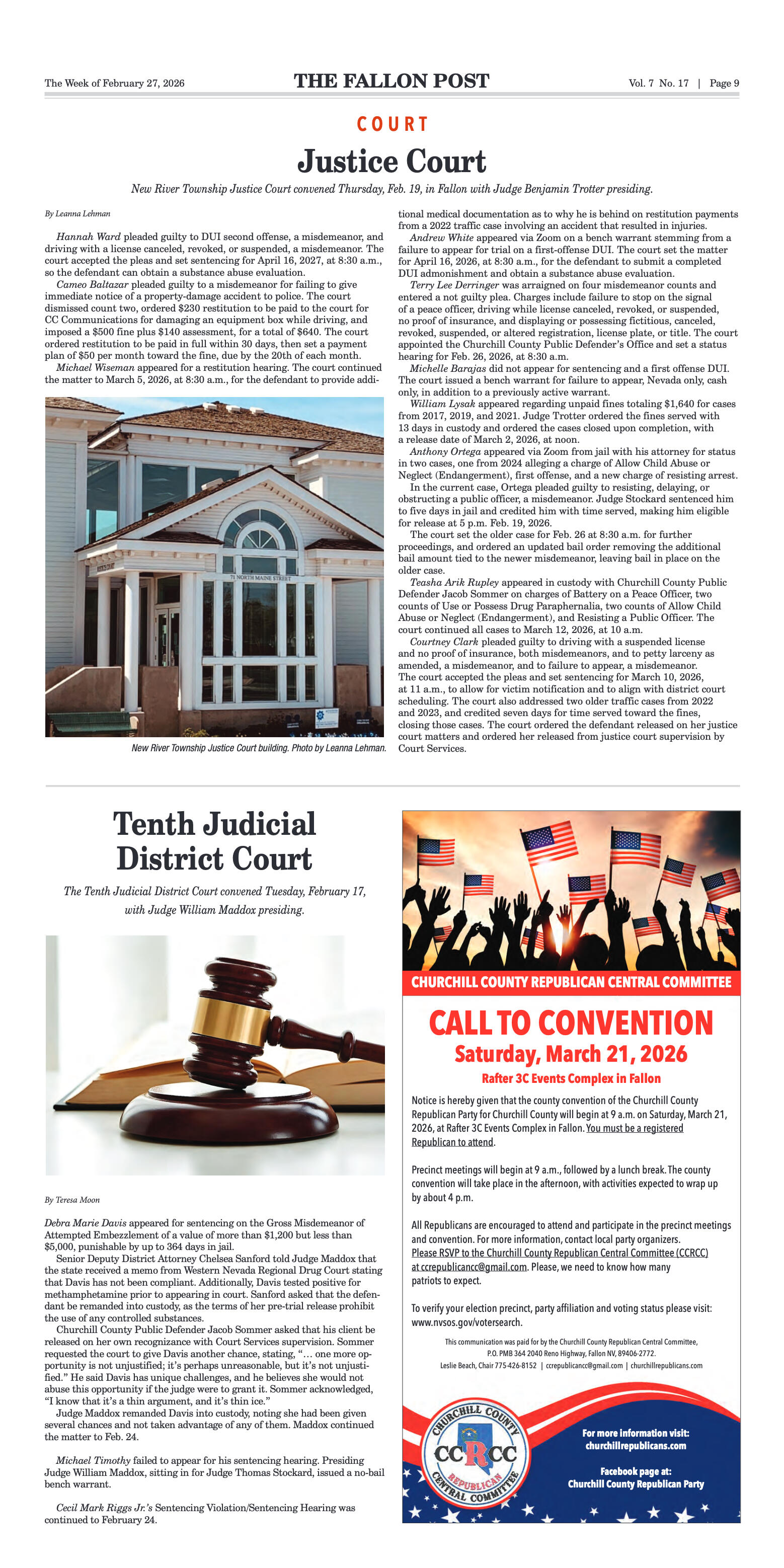
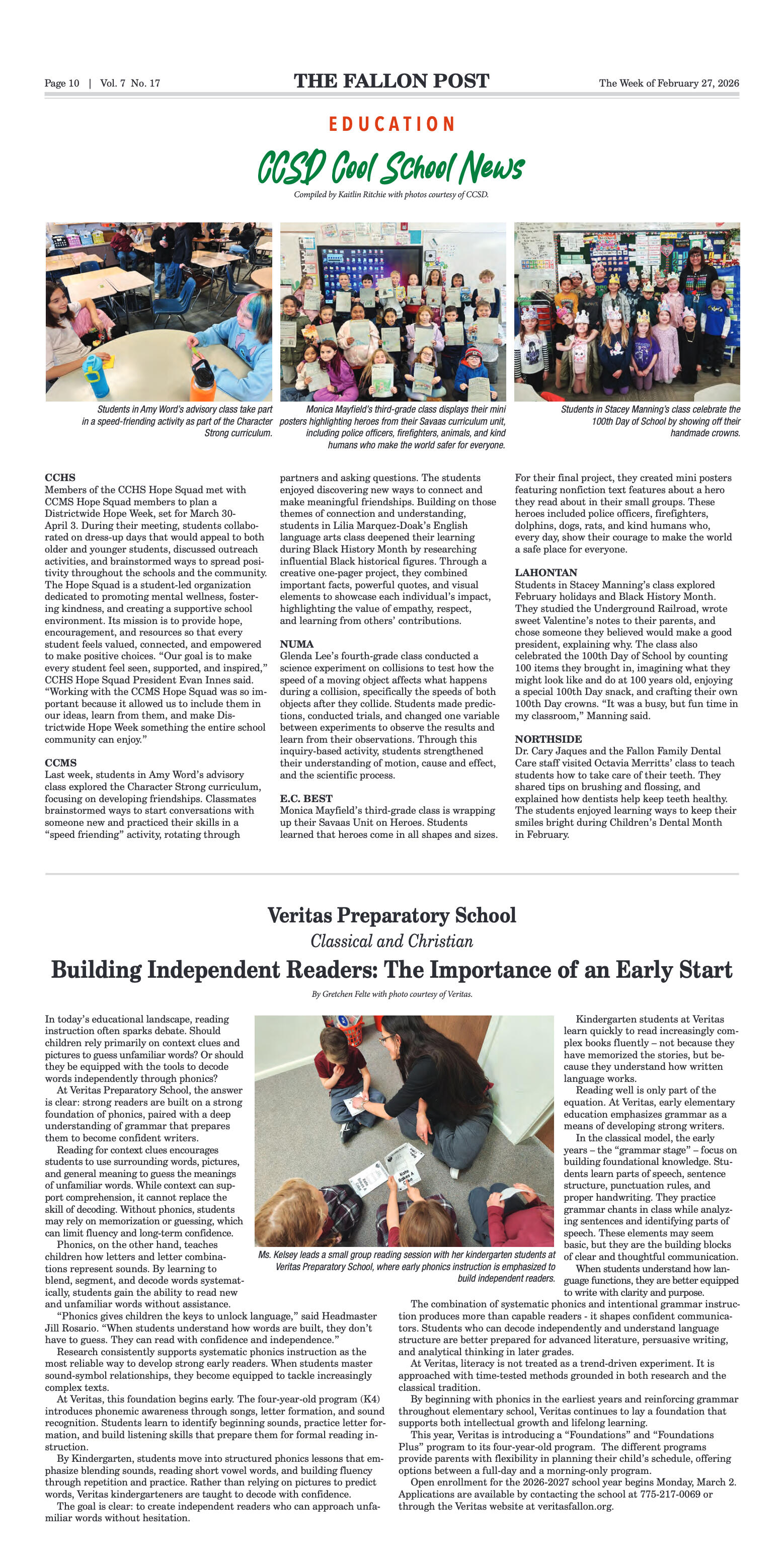
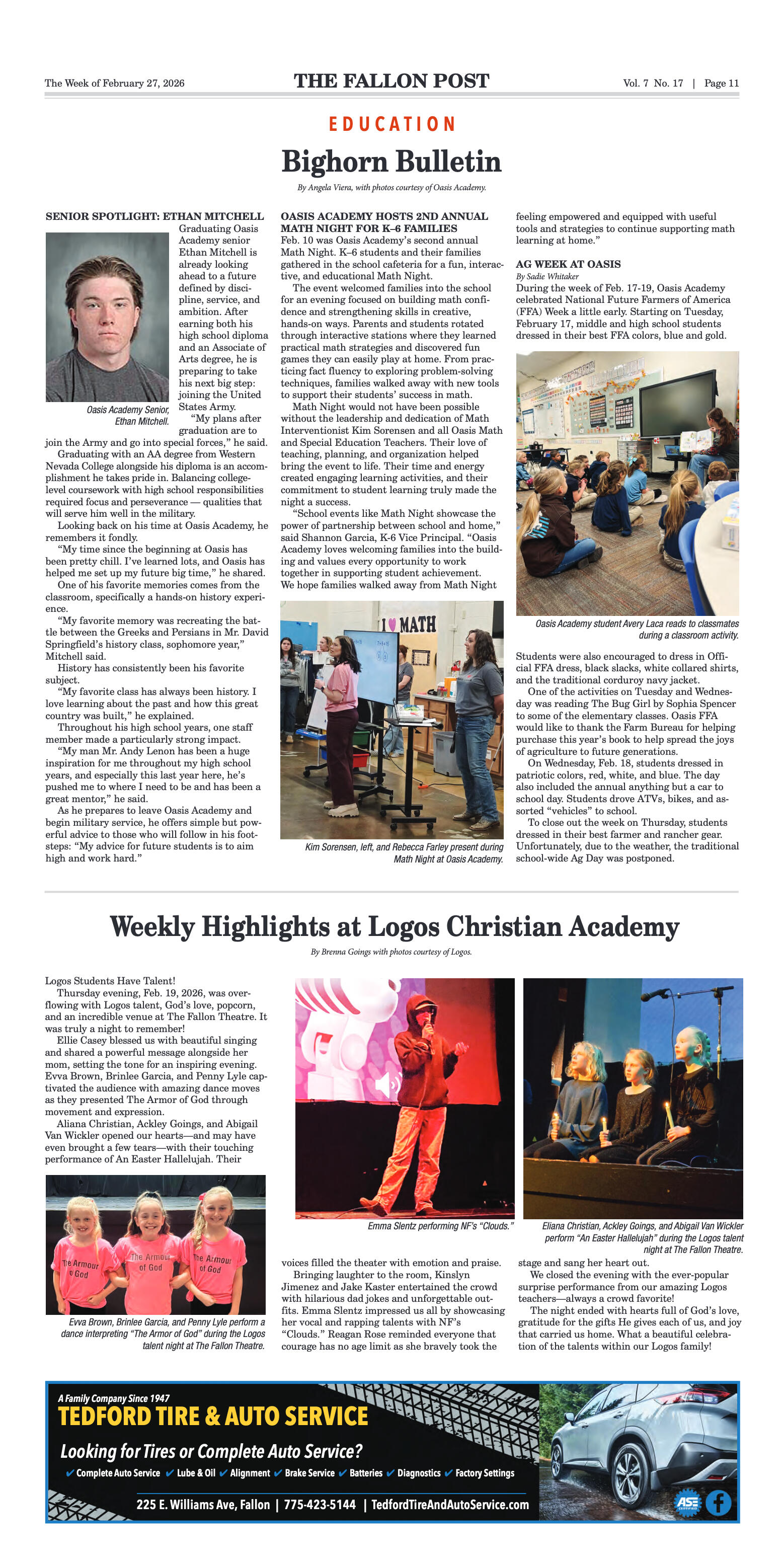
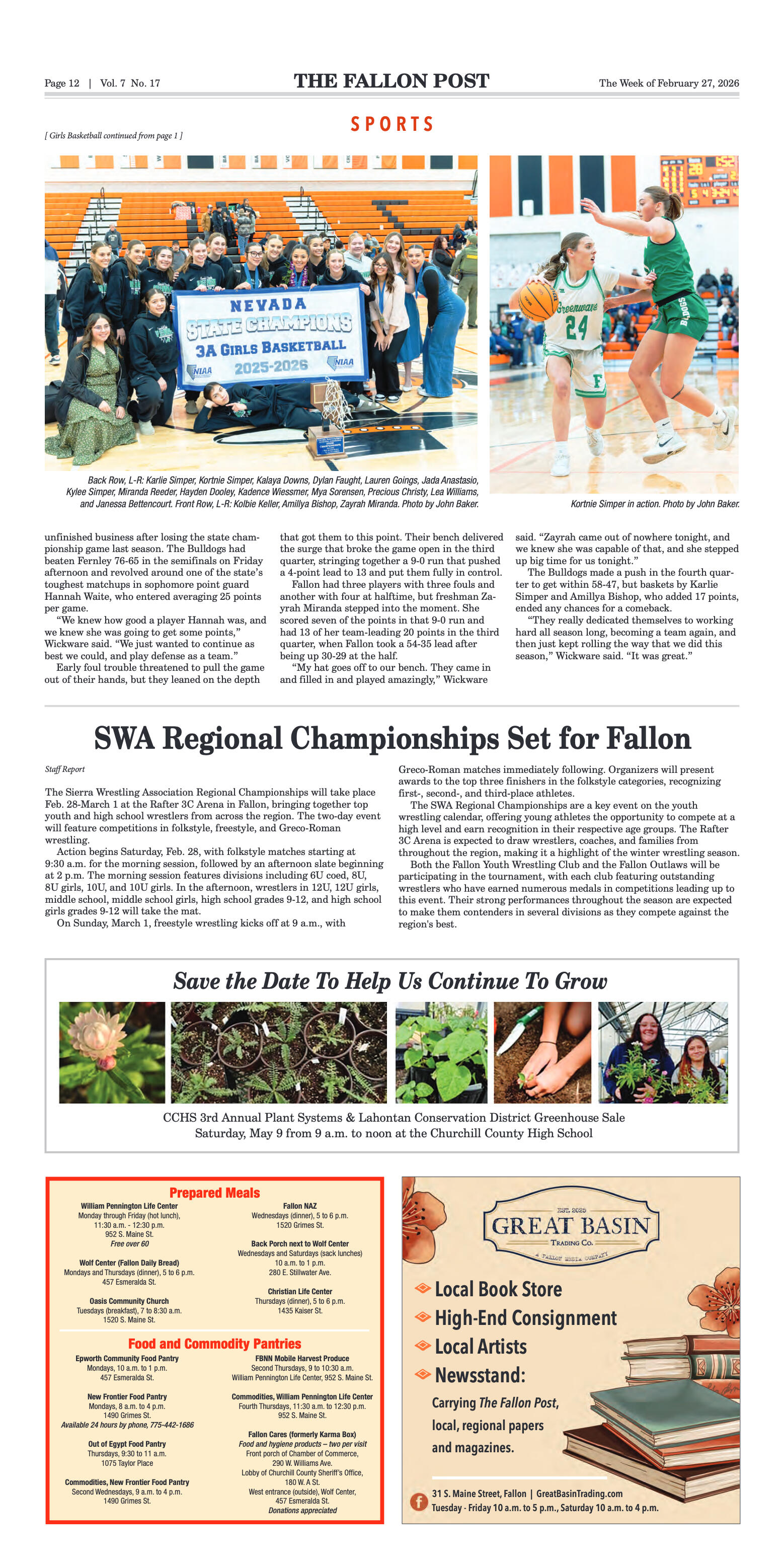
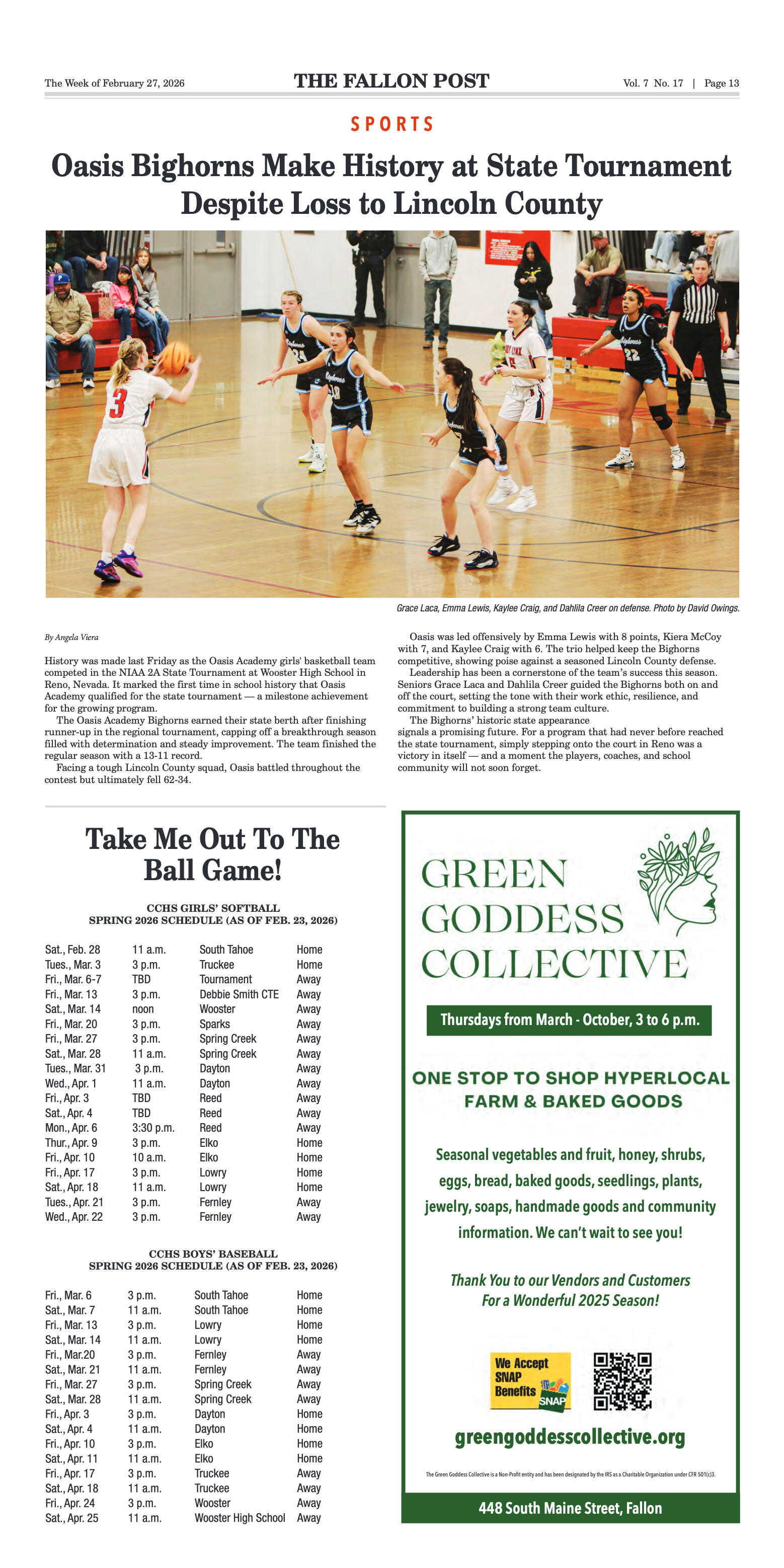
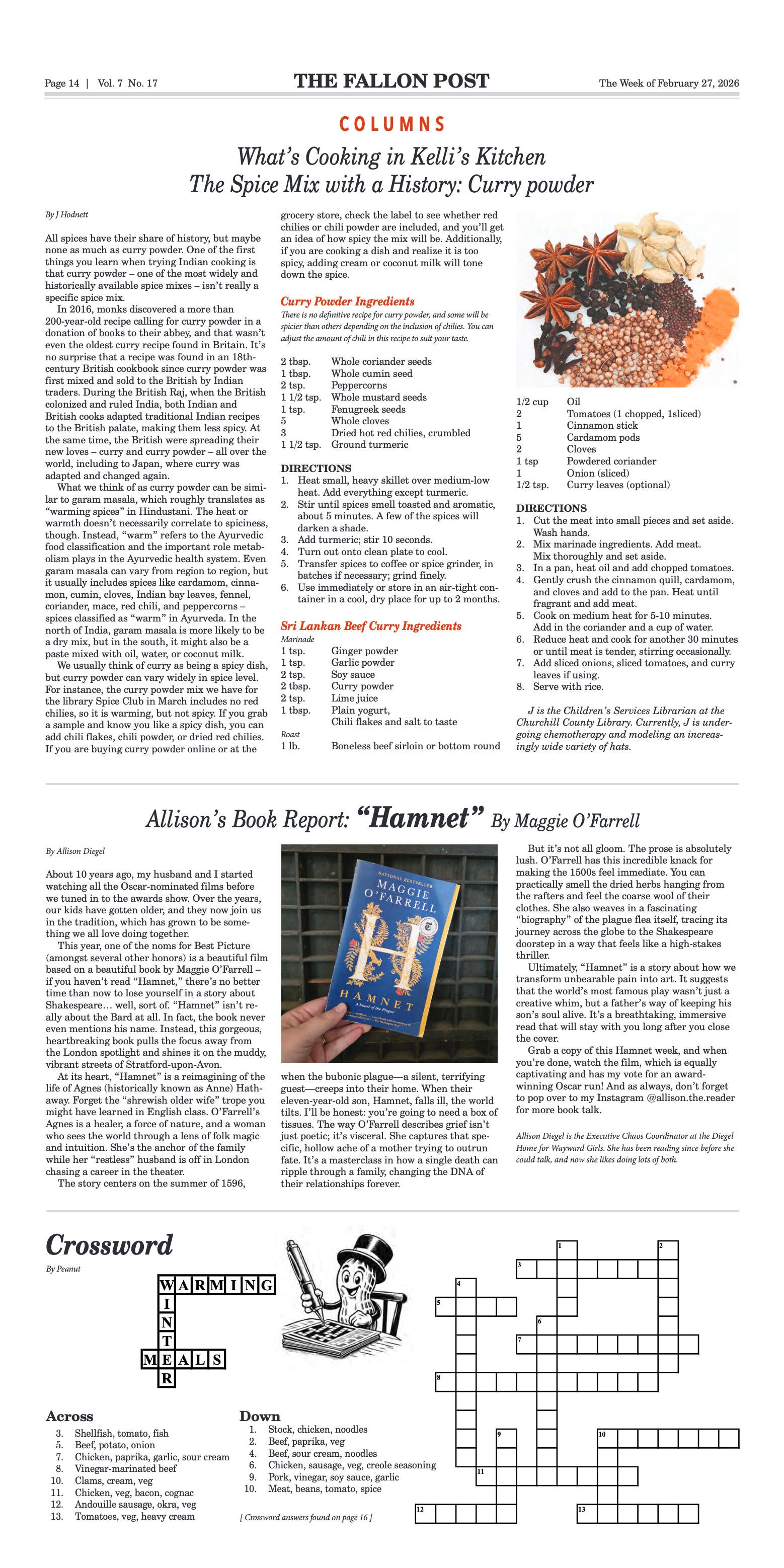
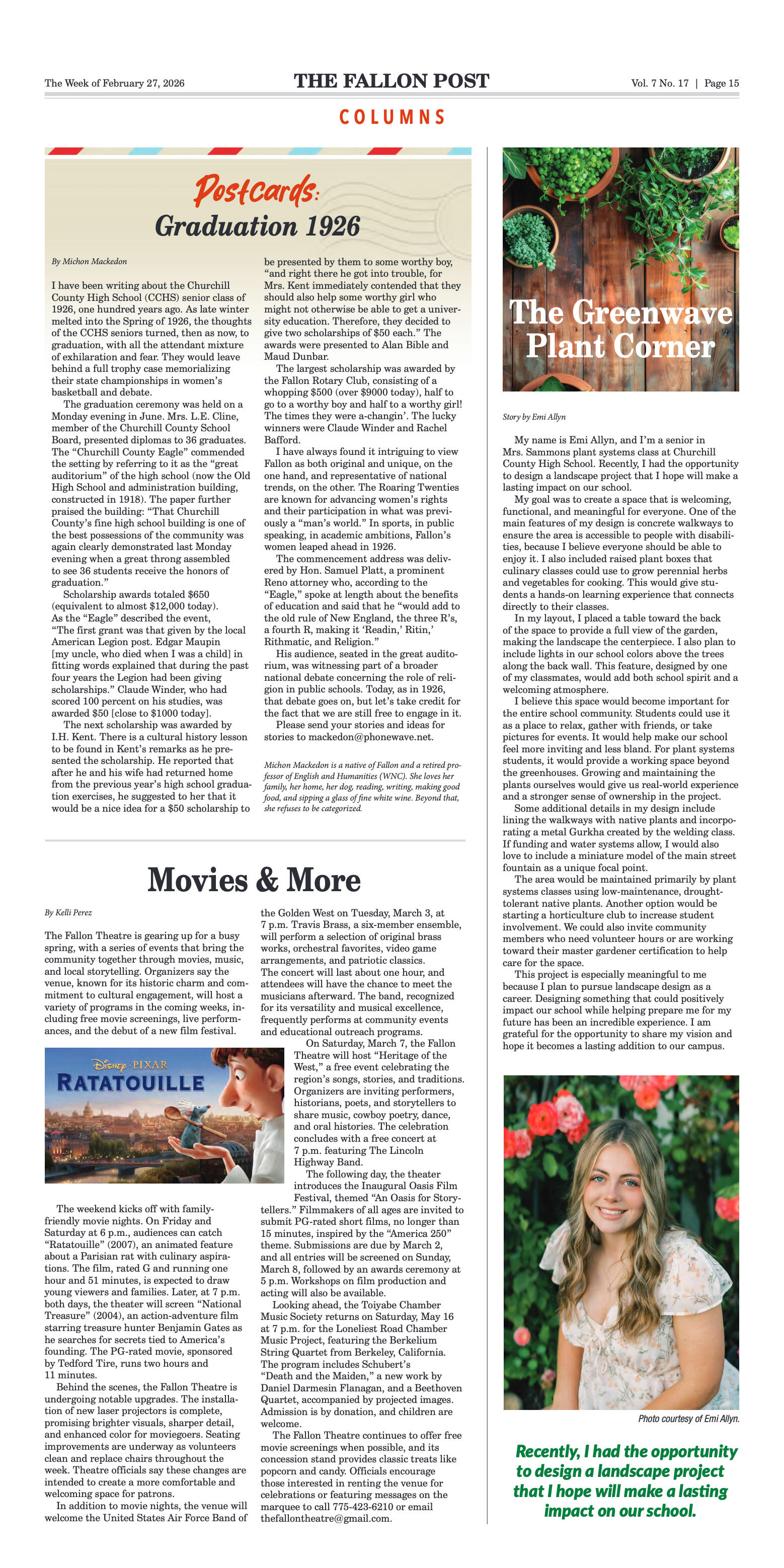
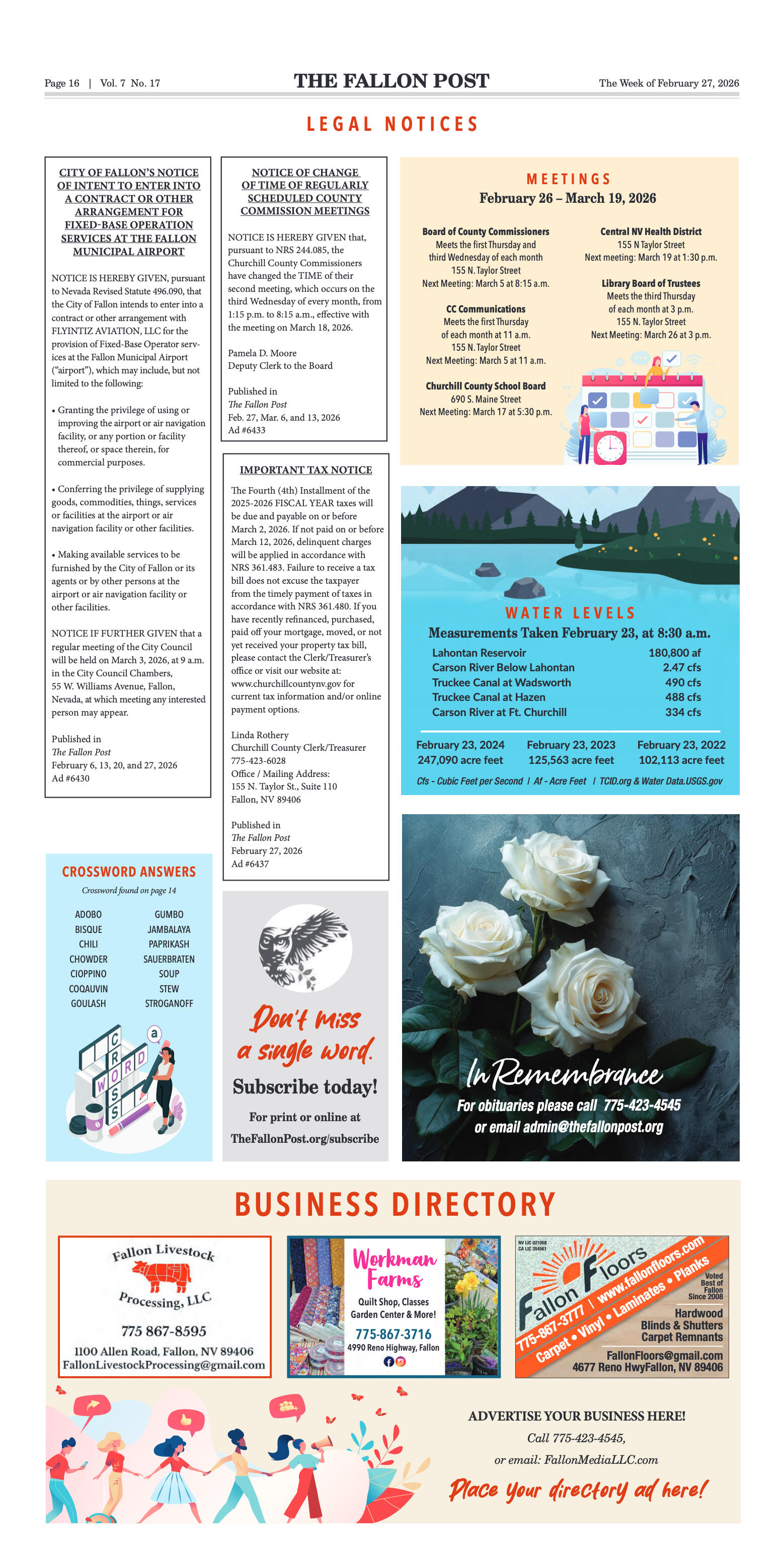
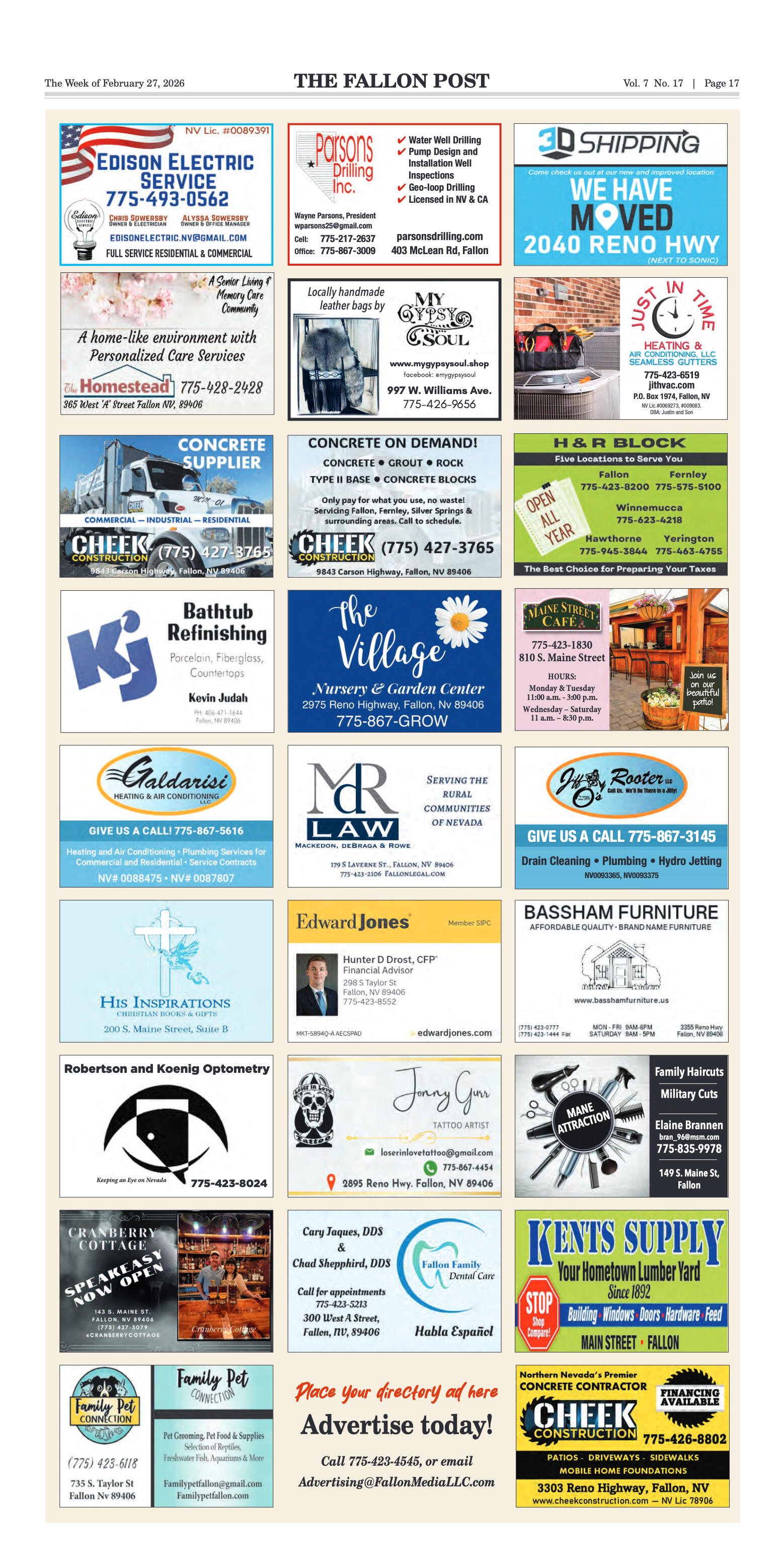



















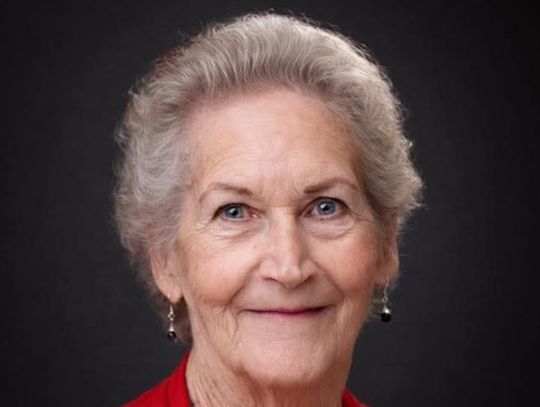
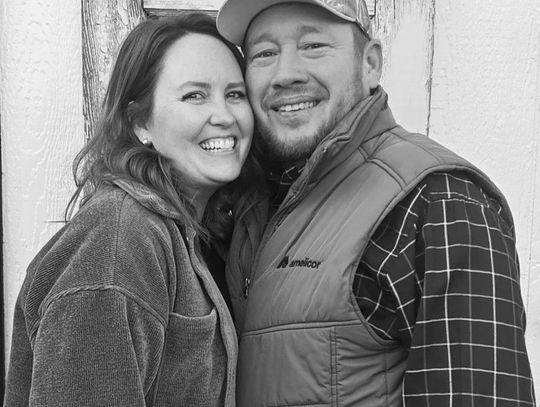


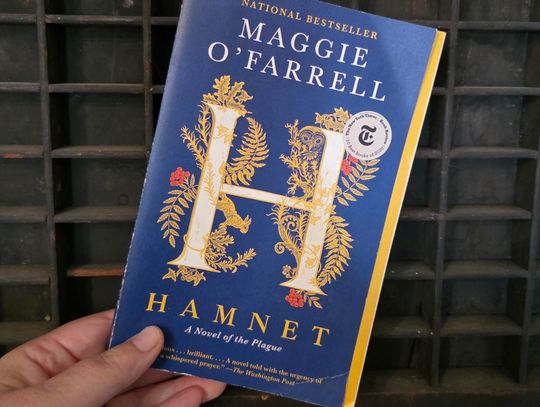

Comment
Comments